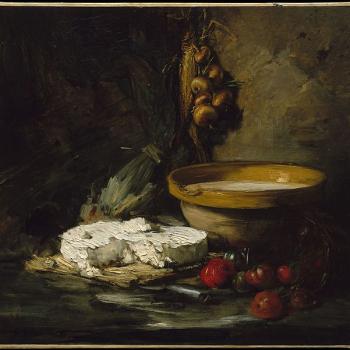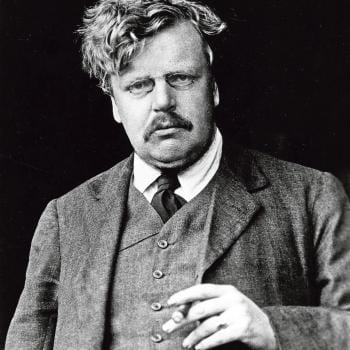Truth expressed harshly is not truth but a mere spattering of facts. Facts that don’t penetrate the head or the heart. Truth is meant to be taken into a person’s soul and in order for it to be effectively transmitted in must be expressed charitably and in clarity. It will then most likely express truths twin sister Beauty. Beauty will illuminate truth to the point that both Truth and Beauty together will produce goodness. Truth, Beauty and Goodness will help create faith which begets hope. Faith and Hope combined together results in love. A love that is convicted to be dedicated to truth.
As a Catholic I believe the fullness of God’s revealed truth is found in the church he founded on Peter the Rock. Non-Catholic Christians accept fully parts of this truth while rejecting other aspects of it. The parts they do accept are parts completely in harmony with Catholics as they came from the source of all truth, namely Jesus Christ. Ecumenism recognizes what we have in common and tries to build bridges in what we share while still recognizing what separates us. It recognizes the worthwhile thoughts of non-Catholic Christians.
The Council states that the Church of Christ “subsists in the Catholic Church, which is governed by the Successor of Peter and by the Bishops in communion with him”, and at the same time acknowledges that “many elements of sanctification and of truth can be found outside her visible structure. These elements, however, as gifts properly belonging to the Church of Christ, possess an inner dynamism towards Catholic unity”.
“It follows that these separated Churches and Communities, though we believe that they suffer from defects, have by no means been deprived of significance and value in the mystery of salvation. For the Spirit of Christ has not refrained from using them as means of salvation which derive their efficacy from the very fullness of grace and truth entrusted to the Catholic Church”
Ut Unum Sint (25 May 1995) | John Paul II
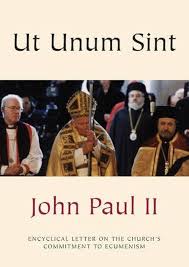
Sometimes non-Catholic Christians can express those ecumenical truths in a way that sheds light in a creative way that can uplift and encourage Catholics. It’s good to recognize beauty wherever the wind of the Holy Spirit blows. I believe that whenever anyone expresses any part of that truth they are sharing
“God’s word which is living and active, and sharper than any two-edged sword, even penetrating as far as the division of soul and spirit, of both joints and marrow, and able to judge the thoughts and intentions of the heart.” – Hebrews 4:12
Does it matter they don’t fully believe everything we believe as Catholics? Should we stop them?
Do not stop them for no one who shares the love of Christ can turn around and speak evil of him. For whoever is not against us is for us. Mark 9: 39 – 40
“What then? Only that in every way, whether in pretense or in truth, Christ is proclaimed, and in this I rejoice. But not only that, I also will rejoice. Phil 1:18
As long as they aren’t slamming Catholics or the Catholic faith it is good to share these thoughts because “whatsoever things are true, whatsoever things are honorable, whatsoever things are just, whatsoever things are pure, whatsoever things are lovely, whatsoever things are of good report; if there be any virtue, and if there be any praise “it is worthy to be thinking on those things. Phil 4: 8
Sharing what is good in other Christians is part of ecumenical dialogue.
Ecumenical dialogue is of essential importance. “Through such dialogue everyone gains a truer knowledge and more just appreciation of the teaching and religious life of both Communions. In the Council’s thinking, ecumenical dialogue is marked by a common quest for truth, particularly concerning the Church. Thanks to ecumenical dialogue we can speak of a greater maturity in our common prayer for one another. – 32, 33, 34 Ut Unum Sint (25 May 1995) | John Paul II
Here is Jimmy Akin pointing out how sometimes we as Catholics and non-Catholics use different language to talk about the same thing.
Here are some worthy thoughts worth thinking about from some non-Catholic Christians who love Christ, his truth and his word. Now just because I share these worthwhile thoughts from these individuals doesn’t mean that everything they say, write or preach is worth listening to or consuming in your soul. It means that these particular thoughts are. I present them here so you can see what others do with the amount of faith that they have. My hope is that these writings will help you see and love others who love Christ and recognize them as brothers and sisters even though we are separated.

“As a child of God, how much more do we need times of complete solitude—times to deal with the spiritual realities of life and to be alone with God the Father. If there was ever anyone who could dispense with special times of solitude and fellowship, it was our Lord. Yet even He could not maintain His full strength and power for His work and His fellowship with the Father without His quiet time. God desires that every servant of His would understand and perform this blessed practice, that His church would know how to train its children to recognize this high and holy privilege, and that every believer would realize the importance of making time for God alone.”
― Streams in the Desert: 366 Daily Devotional Readings (1925)

“Cheap grace means grace sold on the market like cheapjacks’ wares. The sacraments, the forgiveness of sin, and the consolations of religion are thrown away at cut prices. Grace is represented as the Church’s inexhaustible treasury, from which she showers blessings with generous hands, without asking questions or fixing limits. Grace without price; grace without cost! The essence of grace, we suppose, is that the account has been paid in advance; and, because it has been paid, everything can be had for nothing. Since the cost was infinite, the possibilities of using and spending it are infinite. What would grace be if it were not cheap?…
Cheap grace is the preaching of forgiveness without requiring repentance, baptism without church discipline, Communion without confession, absolution without personal confession. Cheap grace is grace without discipleship, grace without the cross, grace without Jesus Christ, living and incarnate.
Costly grace is the treasure hidden in the field; for the sake of it a man will go and sell all that he has. It is the pearl of great price to buy which the merchant will sell all his goods. It is the kingly rule of Christ, for whose sake a man will pluck out the eye which causes him to stumble; it is the call of Jesus Christ at which the disciple leaves his nets and follows him.
Costly grace is the gospel which must be sought again and again, the gift which must be asked for, the door at which a man must knock.
Such grace is costly because it calls us to follow, and it is grace because it calls us to follow Jesus Christ. It is costly because it costs a man his life, and it is grace because it gives a man the only true life. It is costly because it condemns sin, and grace because it justifies the sinner. Above all, it is costly because it cost God the life of his Son: “ye were bought at a price,” and what has cost God much cannot be cheap for us. Above all, it is grace because God did not reckon his Son too dear a price to pay for our life, but delivered him up for us. Costly grace is the Incarnation of God.”
― Dietrich Bonhoeffer, The Cost of Discipleship (1937)
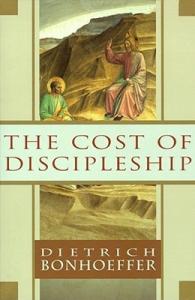
The Resurrection is the central theme in every Christian sermon reported in the Acts. The Resurrection, and its consequences were the “gospel” or good news which the Christians brought: what we call the “gospels,” the narratives of Our Lord’s life and death, were composed later for the benefit of those who had already accepted the gospel. They were in no sense the basis of Christianity: they were written for those already converted. The miracle of the Resurrection, and the theology of that miracle, comes first: the biography comes later as a comment on it. Nothing could be more unhistorical than to pick out selected sayings of Christ from the gospels and to regard those as the datum and the rest of the New Testament as a construction upon it. The first fact in the history of Christendom is a number of people who say they have seen the Resurrection. – C. S. Lewis Miracles (chapter 16) (1947)

“I have one desire now – to live a life of reckless abandon for the Lord, putting all my energy and strength into it.”
― Elisabeth Elliot, Through Gates of Splendor (1957)
He is no fool who gives what he cannot keep to gain that which he cannot lose.
Journal excerpt from Shadow of the Almighty (1989) by Elisabeth Elliot, Jim Elliot, 1949
This quote is a paraphrase of Elliot’s from the original quote (below) by English nonconformist clergyman Philip Henry (1631-1696)
He is no fool who parts with that which he cannot keep, when he is sure to be recompensed with that which he cannot lose.
-Quoted from The life of the Rev. Philip Henry, A.M., Matthew Henry, J. B. Williams, pub. W. Ball, 1839 p. 35 (Google Books)

Some of us, oppressed by our own weakness, may at times have been tempted to think that there are sins which are almost unforgivable. Let us remember the word: “The blood of Jesus Christ his Son cleanses us from every sin.” Big sins, small sins, sins which may be very black and sins which appear to be not so black, sins which I think can be forgiven and sins which seem unforgivable, yes, all sins, conscious or unconscious, remembered or forgotten, are included in those words: “every sin”. “The blood of Jesus his Son cleanses us from every sin”, and it does so because in the first place it satisfies God. ― The Normal Christian Life (Published in English 1957)

Snoopy we would hesitate to call “Christ.” He comes closer, rather, to being “a little Christ” — that is, a Christian. For as Schulz himself has pointed out, Snoopy is capable of being “one of the meanest” members of the entire Peanuts cast. Furthermore, Snoopy has other faults (or “character traits,” as Linus likes to refer to “faults”) :he is lazy, he is a “chow hound” without parallel, he is bitingly sarcastic, he is frequently a coward, and he often becomes quite weary of being what he is basically — a dog. He is, in other words, a fairly drawn caricature for what is probably the typical Christian.
And if anyone should have any illusions about how “good” all Christians are, he would only need to read one of Paul’s letters to “the Saints” in Rome or Corinth to realize that “Saints” often have a few readjustments to make before they become complete angels. How is one to distinguish between the Christian and the non-Christian? Finally, this is a judgment only God can make; but there are certain guideposts available for intelligent guesses. For instance, “By this all men will know that you are my disciples, if you have love for one another” (John 13:35). And in spite of his many rather questionable “character traits,” by this test Snoopy does rather well
-Robert L Short, The Gospel According to Peanuts (1965)

“A Christian has no business being satisfied with mediocrity. He’s supposed to reach for the stars. Why not? He’s not on his own anymore. He has God’s help now.”
“When you heart is ablaze with the love of God, when you love other people – especially the ripsnorting sinners – so much that you dare to tell them about Jesus with no apologies, then never fear, there will be results.”
― Christy (1967)

Do you know what hurts so very much? It’s love. Love is the strongest force in the world, and when it is blocked that means pain. There are two things we can do when this happens. We can kill that love so that it stops hurting. But then of course part of us dies, too. Or we can ask God to open up another route for that love to travel.
“Even as the angry vengeful thoughts boiled through me, I saw the sin of them. Jesus Christ had died for this man; was I going to ask for more? Lord Jesus, I prayed, forgive me and help me to forgive him….Jesus, I cannot forgive him. Give me your forgiveness….And so I discovered that it is not on our forgiveness any more than on our goodness that the world’s healing hinges, but on His. When He tells us to love our enemies, He gives along with the command, the love itself.”
― The Hiding Place: The Triumphant True Story of Corrie Ten Boom (1971)

God’s Word teaches a very hard, disturbing truth. Those who neglect the poor and the oppressed are really not God’s people at all—no matter how frequently they practice their religious rituals nor how orthodox are their creeds and confessions.
It is a sinful abomination for one part of the world’s Christians to grow richer year by year while our brothers and sisters ache and suffer for lack of minimal health care, minimal education, and even—in some cases—enough food to escape starvation.
― Rich Christians in an Age of Hunger: Moving from Affluence to Generosity (1977)
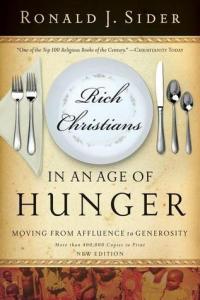
“In the Christian context, we do not mean by a “mystery” merely that which is baffling and mysterious, an enigma or insoluble problem. A mystery is, on the contrary, something that is revealed for our understanding, but which we never understand exhaustively because it leads into the depth or the darkness of God. The eyes are closed—but they are also opened.”
― The Orthodox Way (1979)
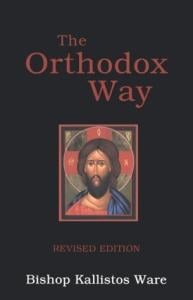
They turned from the door and walked through the small foyer. The bulletin board on the wall carried requests for groceries for a needy family, some baby-sitting, and prayer for a sick missionary. A large bill announced a congregational business meeting for next Friday. On the other wall, the record of weekly offerings indicated the offerings were down from last week; so was the attendance, from sixty-one to forty-two.
Down the short and narrow aisle they went, past the orderly ranks of dark-stained plank and slat pews, toward the front of the sanctuary where one small spotlight illumined a rustic two-by-four cross hanging above the baptistry. In the center of the worn-carpeted platform stood the little sacred desk, the pulpit, with a Bible laid open upon it. These were humble furnishings, functional but not at all elaborate, revealing either humility on the part of the people or neglect.
Then the first sound was added to the picture: a soft, muffled sobbing from the end of the right pew. There, kneeling in earnest prayer, his head resting on the hard wooden bench, and his hands clenched with fervency, was a young man, very young, the blond man thought at first: young and vulnerable. It all showed in his countenance, now the very picture of pain, grief, and love. His lips moved without sound as names, petitions, and praises poured forth with passion and tears.
The two couldn’t help but just stand there for a moment, watching, studying, pondering.
“The little warrior,” said the dark-haired one.
The big blond man formed the words himself in silence, looking down at the contrite man in prayer.
“Yes,” he observed, “this is the one. Even now he’s interceding, standing before the Lord for the sake of the people, for the town …”
“Almost every night he’s here.”
At that remark, the big man smiled. “He’s not so insignificant.”
“But he’s the only one. He’s alone.”
“No.” The big man shook his head. “There are others. There are always others. They just have to be found. For now, his single, vigilant prayer is the beginning.”
“He’s going to be hurt, you know that.”
“And so will the newspaperman. And so will we.”
“But will we win?”
The big man’s eyes seemed to burn with a rekindled fire.
“We will fight.”
“We will fight,” his friend agreed.
They stood over the kneeling warrior, on either side; and at that moment, little by little, like the bloom of a flower, white light began to fill the room. It illuminated the cross on the back wall, slowly brought out the colors and grain in every plank of every pew, and rose in intensity until the once plain and humble sanctuary came alive with an unearthly beauty. The walls glimmered, the worn rugs glowed, the little pulpit stood tall and stark as a sentinel backlit by the sun.
― This Present Darkness (1986)

“What is the greatest surprise you have found about life?” a university student asked me several years ago. “Its brevity” I replied without hesitation. … Time moves so quickly, and no matter who we are or what we have done, the time will come when our lives will be over. As Jesus said, “As long as it is day, we must do the work of him who sent me. Night is coming, when no one can work” (John 9:4). … Life is short, and every day is a gift from God.
I don’t know the future, but I do know this: the best is yet to be! Heaven awaits us, and that will be far, far more glorious than anything we can ever imagine. I know that soon my life will be over. I thank God for it, and for all He has given me in this life. But I look forward to Heaven. I look forward to the reunion with friends and loved ones who have gone on before. I look forward to Heaven’s freedom from sorrow and pain. I also look forward to serving God in ways we can’t begin to imagine, for the Bible makes it clear that Heaven is not a place of idleness. And most of all, I look forward to seeing Christ and bowing before Him in praise and gratitude for all He has done for us, and for using me on this earth by His grace — just as I am.
Just As I Am : The Autobiography of Billy Graham (1997), co-written with Cliff Barrows

It is a fatal mistake to assume that God’s goal for your life is material prosperity or popular success, as the world defines it. The abundant life has nothing to do with material abundance, and faithfulness to God does not guarantee success in a career or even ministry. Never focus on temporary crowns.
When you give someone your time, you are giving them a portion of your life that you’ll never get back. Your time is your life. That is why the greatest gift you can give someone is your time.
― The Purpose Driven Life: What on Earth Am I Here for? (2002)

Male and female he created us. Gender is a source of great dignity, and beauty, honor, and mutual respect. In this rather sensitive hour, many good people fear naming the differences between men and women at all, largely because they believe it will usher in discrimination and divisiveness. But this need not be. When we understand just how glorious gender is, how distinct and complementary, how unique and utterly worthy of respect on all sides, I think we can find a better way in our relations. After all, Jesus—the most loving man ever—seemed to think that gender was essential to human understanding: “Haven’t you read,” he replied, “that at the beginning the Creator ‘made them male and female’” (Matt. 19:4). God doesn’t make generic people; he makes something very distinct—a man or a woman. In other words, there is a masculine heart and a feminine heart, which in their own ways reflect or portray to the world God’s heart.
John and Stasi Eldredge, Captivating: Unveiling the Mystery of a Woman’s Soul (2021 )
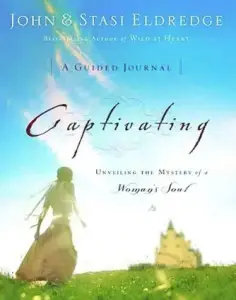
“So this is a story about light and goodness and Truth with a capital T. It’s about beauty, and resurrection, and redemption. But for those things to ring true in a child’s heart, the storyteller has to be honest. He has to acknowledge that sometimes when the hall light goes out and the bedroom goes dark, the world is a scary place. He has to nod his head to the presence of all the sadness in the world; children know it’s there from a very young age, and I wonder sometimes if that’s why babies cry. He has to admit that sometimes characters make bad choices, because every child has seen their parent angry or irritable or deceitful–even the best people in our lives are capable of evil.
But of course the storyteller can’t stop there. He has to show in the end there is a Great Good in the world (and beyond it). Sometimes it is necessary to paint the sky black in order to show how beautiful is the prick of light. Gather all the wickedness in the universe into its loudest shriek and God hears it as a squeak at best. And that is a comforting thought. When a child reads the last sentence of my stories, I hope he or she drifts to sleep with a glow in their hearts and a warmth in their bones, believing that all shall be well, and all shall be well, and all manner of things shall be well.”
― On the Edge of the Dark Sea of Darkness (2008)

“I am very serious when I say this, beware of your dreams, for dreams make dangerous friends. We all have them—longings for a better life, a healthy child, a happy marriage, rewarding work. But dreams are, I have come to believe, misplaced longings. False lovers. Why? Because God is enough. Just God. And he isn’t “enough” because he can make our dreams come true—no, you’ve got him confused with Santa or Merlin or Oprah. The God who created the universe is enough for us—even without our dreams.”
― Me, Myself, and Bob: A True Story About Dreams, God, and Talking Vegetables (2008)

Even after we hear some great cathedral choir praise him with Handel’s Messiah, we still desire to adore him with the words of the child’s hymn “Jesus Loves Me.” “Jesus Loves Me” is our simple, world-class anthem. It is rooted in our childhood. Who can chart the varied ways he comes to us? He sometimes comes upon us suddenly in a rush of overwhelming love. His presence is as warm as a desert wind let loose in the Arctic winter of our despair. He sometimes comes more quietly to touch our lives and set God’s grandeur dancing with our need. But always his coming brings joy. I have felt it and wept. Why? Because, in the midst of a pointless universe I drink of true significance. I feel Jesus’ love. No—I more than feel it. I claim it, deposit it at the bank, and draw daily on the account. “Jesus loves me” is the heart of all I cherish. Indeed, from year to year I revel in it. Its warmth lingers about me in every instance of threat or pressure. This simple song calms me, strips off my threats, and drains my stress into reservoirs of God’s serenity.
-Calvin Miller, Jesus Loves Me: Celebrating the Profound Truths of a Simple Hymn (2009).

“My wheelchair was the key to seeing all this happen—especially since God’s power always shows up best in weakness. So here I sit … glad that I have not been healed on the outside, but glad that I have been healed on the inside. Healed from my own self-centered wants and wishes.”
― A Place of Healing: Wrestling with the Mysteries of Suffering, Pain, and God’s Sovereignty (2010)

“Take a good long look at The Lord’s Prayer. It’s all ‘we’, ‘us’ and ‘our’. There is no ‘me’, ‘I’ or ‘mine’ anywhere.”
Who am I? Is there any purpose to my life? Why was I born in this country? Why was I given this nationality and brought up in this family in this era of history? How would my future change if any of these aspects were different? Some people never ask these questions. Others never stop asking them. Still others regard the idea of a special purpose mapped out by God for each individual as absurd. Still others believe fervently each person has a destiny divinely and intentionally designed.
For the Hebrews, names provided a direct link with the Creator.9 They understood words as being the creative fire of God, the ‘black fire on white fire’ of His Law. Every utterance and every act of creation through which He revealed Himself was not only word made flesh but fire made flesh. The word for being, ‘yesh’, to exist or to have substance was flame-breathed.
The word for fire, ‘esh’, was embedded in the word for being and in the very notion of ‘being human’. The rabbis were said to have asked: Why is the word for woman, ‘ishah’? Because she is fire, ‘esh’. Why is the word for man, ‘ish’? Because he too is fire, ‘esh’. They noted that when the Hebrew letters for man and woman came together they produced a new word as part of the union: ‘yah’, a reference to Yahweh, the Name of God.10 This offers us a whole new perspective on why it is not good for man to be alone.
– God’s Poetry: The Identity and Destiny Encoded In Your Name (2010)

God knows that you may either serve Him or reject Him. You may say,
“Lord, wherever You lead, I will follow, even through the wilderness.” Or you may decide to say,
“I can’t deal with this. I thought life would be better than this. I quit.”
But God knows that we must be tried in the fire so that we can become as pure as gold. God brings us into the wilderness to perfect our faith. You cannot have all pleasure without pain, neither can you enjoy only good times without adversity. Your faith is perfected in the furnace of affliction and adversity. There is something about going through dilemmas and crises that bring us to the place where we discover things about God which we would not have known under other circumstances.
T. D.Jakes, God’s Provision For Your Every Need(2013)

We must pray for missionaries who prioritize prayer in their lives. Why? Because prayer and missions go hand in hand. I don’t think it’s a coincidence that at the peak of the Korean church’s influence around the world it was known for its prayer and missions. In a place of prayer and worship Isaiah saw a vision in Isaiah 6, and from that place before God he received his call to go and be the Lord’s messenger. And later on in Isaiah 56:7 the Lord says,
These I will bring to my holy mountain,
and make them joyful in my house of prayer;
their burnt offerings and their sacrifices
will be accepted on my altar;
for my house shall be called a house of prayer
for all peoples.
God’s house will be called a house of prayer for all nations. Prayer and mission are connected in the kingdom of God because those who dwell in his presence gain his heart and receive his assignments. His heart cries out for the lost to know saving grace. So pray for people to pray for the nations.
-Eddie Byun, Praying for Your Missionary: How Prayers from Home Can Reach the Nations (2018) InterVarsity Press
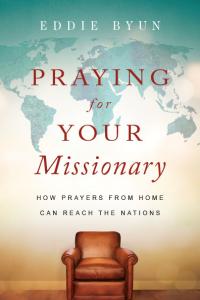
Way before my mama had a mouth to smile with, or her mama had hands to clean collard greens (hands that came from a woman who had a slave’s eyes, a stolen African’s cheekbones, and a European’s last name)—there were the two people to see God’s face first. Adam and Eve looked much different back then. I’m sure they stood as tall and as strong as God had intended, with almost glorious skin, just like the baby they never had to be. But how they looked had more to do with whom they reflected than how attractive they might’ve been. When made, their bodies and their souls were unblemished—clean, almost glass-like through which to see their Creator. He couldn’t be compared to anything other than Himself, nor easily described by the things He’d made. Words like gorgeous, amazing, wonderful, or breathtaking are easy, borderline lazy when used to describe the Holy One.
Jackie Hill Perry, Gay Girl, Good God: The Story of Who I Was and Who God Has Always Been (2018)

When the apostle Peter proclaimed that those in Christ “may participate in the divine nature,” he was not suggesting that redeemed humanity may become what God is in his essence. That is not only impossible but heretical. Those in Christ become by grace what the Son of God is by nature Children of God.” Gods by grace. Gods by participation in the divine nature. Historically, the Christian church has illustrated this scintillating truth through the thrusting of a sword into the red-hot flames of a furnace. While the steel of the sword takes on the properties of fire, such that gray steel turns fiery red, the sword never becomes the fire nor the fire the sword. Likewise water and sponge. Though the sponge absorbs the ineffable waters of God’s inexhaustible energy, it yet remains a sponge. The sponge does not become the water, nor the water the sponge. Again, to be in Christ—to experience his divine life—is to experience his energies, not to partake of his essence.
Hank Hanegraaff –Truth Matters, Life Matters More: The Unexpected Beauty of an Authentic Christian Life (2019)
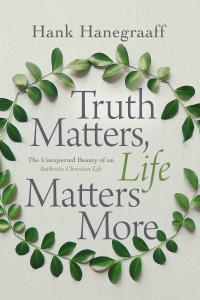
Then Evangelist looked at him very kindly. “The stories are all quite true,” he said. “The King loves little children. If you will obey Him and begin your journey, He will watch over you all the way, and when you reach the Celestial City you will be happy forever.”
“I would go now,” said little Christian, “if I only knew the way.”
Evangelist turned around and looked across the field, along the path by which he had come. “Do you see there is a gate at the other side of the plain?” And he pointed to it with the tip of his wing.
But little Christian’s eyes were still dim with tears, so he could not see the gate.
“Well,” said Evangelist, “there is a light shining above it. Can you see that?”
“Yes,” said the little rabbit. “I think I can.”
“The way to the Celestial City is through that gate. Now I will give you a message from the King.” And Evangelist drew out a paper, which he put into little Christian’s hand.
There were words written upon it in gold and beautiful colors, and Christian read them aloud:
“I LOVE THEM THAT LOVE ME, AND THOSE THAT SEEK ME EARLY SHALL FIND ME.”
“That is the King’s promise to all His little children. So do not cry anymore, but go quickly to that gate and knock. One of the King’s servants will open it, and he will tell you where to go next.”
Helen Taylor, . Little Pilgrim’s Progress The Illustrated Edition: From John Bunyan’s Classic (2021). Moody Publishers
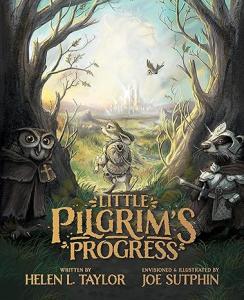
Some days I notice angels everywhere,
light glancing through windows, flying
through window glass lightly as air.
A human ear shaped like a wing,
curiously curving to admit the flare
of sound, hints to me of angels listening to my listening,
even as I sing.
What is that vagrant cloud, glistening?
Often in the blue heaven a trail
of light from a plane to me appears
as a heavenly body playing up there
beyond my grasping. Or, the taillight
of a highway truck sends a spark
like some twinkly being in the dark
trailing her glory robe in sight
of stationary watchers.
Once, daylight,
and a sudden, surprising, newer view,
when over the marshy grass a winged flight
invites a vision—Gabriel, or a Great Blue?
But often, through my twilight’s skylight
asterisks multiply like silver sand and, near to far,
I link myself again, each night with Oh!
One bright, angelic, particular star.
Luci Shaw Angels Everywhere: Poems (2022) Paraclete Press

When you flip through the pages of the Bible, you’ll quickly notice that terms such as “happy,” “joyful,” and “blessed” seem to dance around one another, often used interchangeably to paint a picture of a life full of divine favor and contentment. It’s as if they’re three best friends on a mission to highlight the good life according to Scripture. Take James, for instance, who didn’t shy away from proclaiming that those who endure trials are “happy, spiritually prosperous, and favored by God” (1:12 AMP). This phrase might sound a bit grandiose, but it’s spot-on. James 1:12 says, “Blessed is the one who perseveres under trial because, having stood the test, that person will receive the crown of life.” Here, “blessed” isn’t just a simple pat on the back; it’s an acknowledgment of deep, enduring joy.
Tauren Wells , Joy Bomb: Unleash Jesus’s Explosive Joy for an Extraordinary Life (2025) Zondervan





